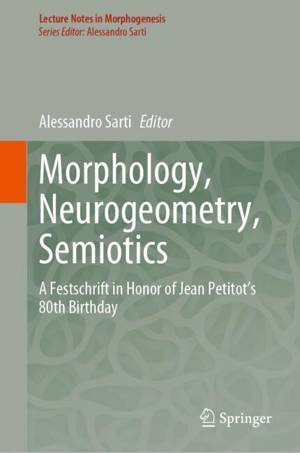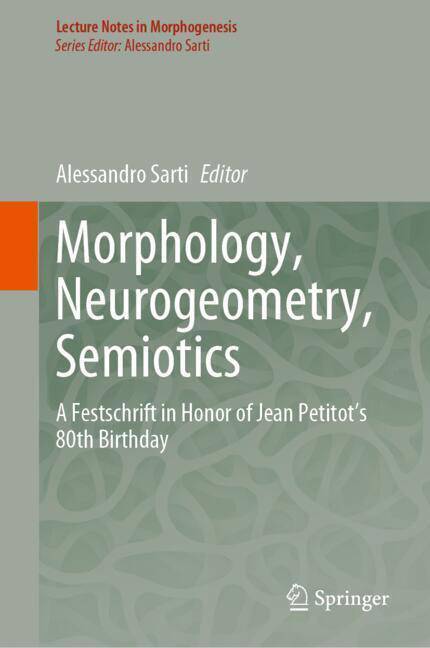
- Retrait gratuit dans votre magasin Club
- 7.000.000 titres dans notre catalogue
- Payer en toute sécurité
- Toujours un magasin près de chez vous
- Retrait gratuit dans votre magasin Club
- 7.000.0000 titres dans notre catalogue
- Payer en toute sécurité
- Toujours un magasin près de chez vous
Morphology, Neurogeometry, Semiotics
A Festschrift in Honor of Jean Petitot 's 80th Birthday
Description
Jean Petitot is a polyhedric thinker whose contributions has been fundamental in a number of disciplines, such as epistemology, morphodynamics, differential geometry, structural semiotics, neurogeometry, phenomenology, linguistics, cognitive grammars, the theory of catastrophes, social sciences, literary studies, and aesthetics. This book is a homage to his huge contribution about the main concepts of morphogenesis and meaning that constitute the center of gravity around which Petitotian reflection revolves and returns.
The scientific path of Jean Petitot develops between these two poles, topology and meaning. At stake it was to challenge the hiatus separating the exact sciences from the humanities that was the main point of the Petitot seminar of EHESS Epistemology of Models. By designing the appropriate qualitative dynamics between the two poles, form and meaning, it is possible to understand the Saussurian sign in structural semiotics, or the Greimasian semiotic square fordeep narrative structures or even the canonical formula of the myth of Lévi Strauss in structural anthropology. These are just few results in applying the theory of catastrophes to the emergence of meaning. The book is a collection of testimonies by distinguished authors who worked extensively with Jean Petitot in the different fields of Mathematics, Neurogeometry, Semiotics, Aesthetics, and Epistemology.
An extensive bibliography of Petitot's work is also presented.
Spécifications
Parties prenantes
- Editeur:
Contenu
- Nombre de pages :
- 267
- Langue:
- Anglais
- Collection :
Caractéristiques
- EAN:
- 9783031519925
- Date de parution :
- 04-06-24
- Format:
- Livre relié
- Format numérique:
- Genaaid
- Dimensions :
- 156 mm x 234 mm
- Poids :
- 616 g

Les avis
Nous publions uniquement les avis qui respectent les conditions requises. Consultez nos conditions pour les avis.





